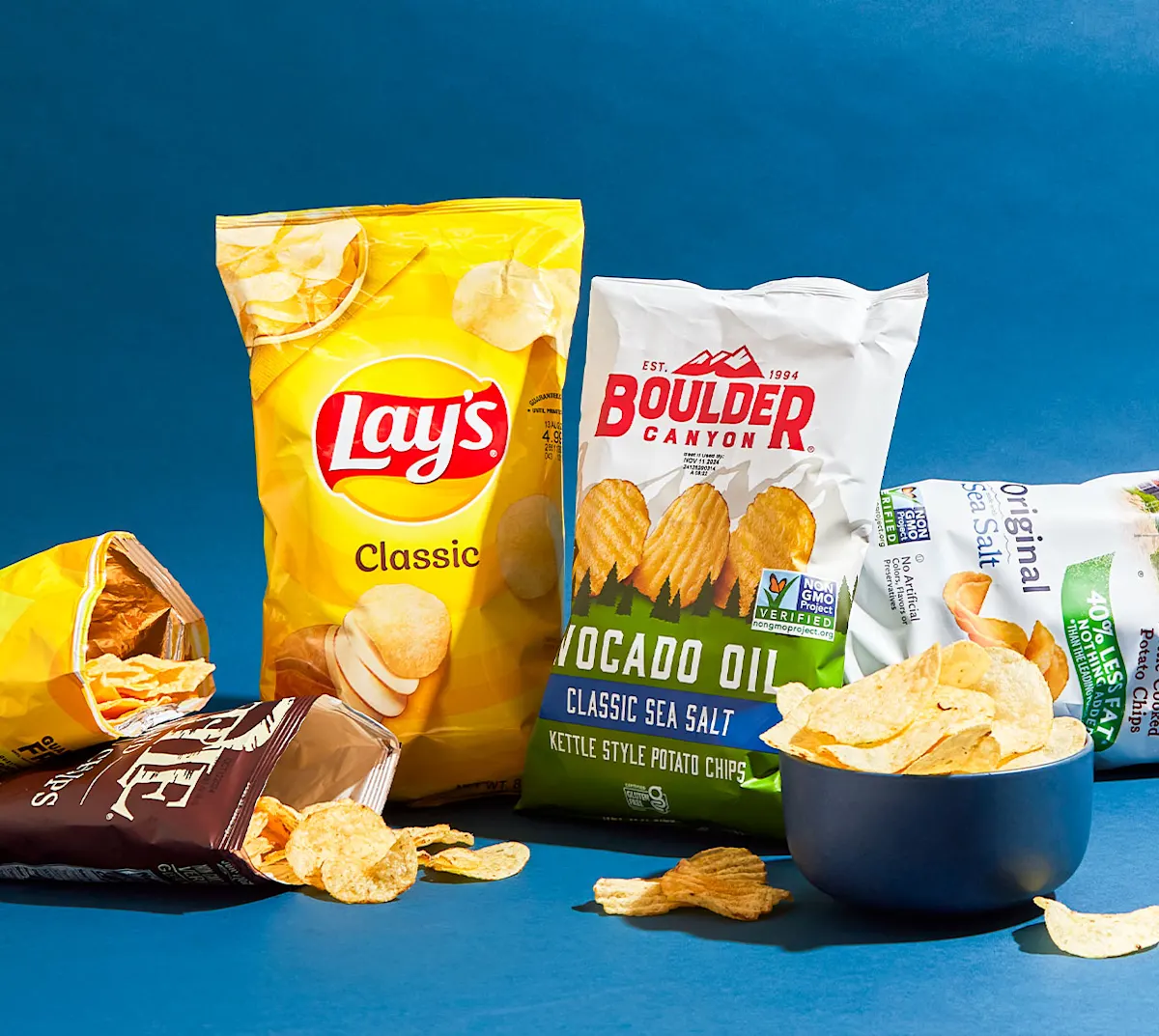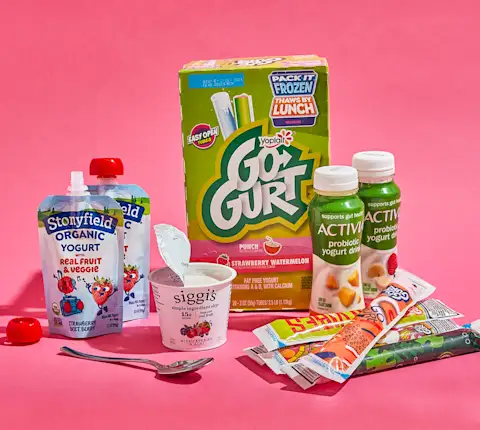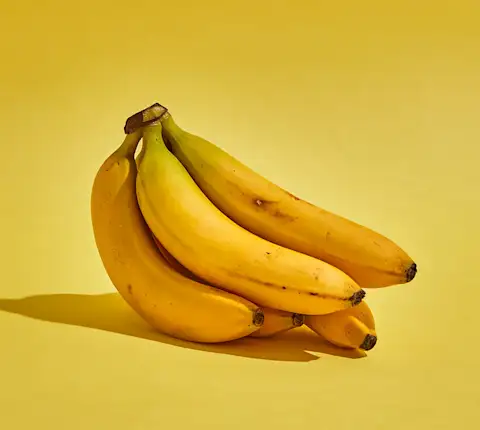*This article includes mentions of merchants or brands who are partners of DoorDash, and DoorDash may receive a commission if you choose to make a purchase from these merchants or brands.
Chances are, if there are potato chips in the house, you’re going to eat them without even glancing at the bag they came in. Potato chips are a perfect food, and when we eat them one bag at a time, it’s hard to pick up on any nuance because receptors in the brain are short-circuiting in rapturous joy. However, the search for the best potato chips in the land made me approach eating chips a different way, opening multiple bags at once and realizing the range between brands. Deep golden brown chips versus featherlight yellow ones. I noticed the layers of salt left on my tongue and grease moisturizing my fingers. I chugged water for days, mulling over the merits of an extra salty chip and whether a baked chip needs to even exist. Here are the verdicts.
Shop GroceryThe Tasters
A snack and potato chip enthusiast, your main tester worked at Bon Appétit for nearly 7 years, where I was the senior staff writer. During that time, I wrote a longform magazine article about why we love crispy foods, reporting from Frito-Lay headquarters in Plano, Texas, where I visited the company’s kitchens and got a peek at an airline hangar-size area filled with different machinery for various chip extrusions while speaking to the chefs who engineer crisp idolatry from 9 to 5. I also spoke to food scientists, texture analysts, and audio engineers to get to the bottom of what makes crispy foods so special. My deep industry knowledge of potato chip brands was mostly going to waste until I got this important assignment.
The Methodology
Twelve potato chip options were tested, including tragic generic brands with imposter syndrome (until they shatter between your fingers, so frail and lifeless). It was important to taste the chips in a group, rather than individual tastings, to compare their appearance, textures, and flavors. It was especially important that the bags were freshly opened and tasted immediately because once exposed to air, potato chips begin their quick route to staleness.
Chips were tested for: flavor (did they even taste like a potato, or frying oil?), salt balance, texture (light and airy for classic chips, crunchy but not violent for kettle), and average chip size (a bag full of small broken bits is a dud). Chips were consumed out of hand, layered on sandwiches, and dipped into sour cream and onion dip to test structural integrity. For fairness, classic potato chips were rated in a separate category than kettle.
The following chips were not included for practical reasons: Flavored potato chips, Pringles, Poppables, Munchos, potato sticks, ridged chips, and local chip brands that cannot be found nationwide, even though I adore Better Made and Great Lakes potato chips, for the record.
The Results
The Classic For a Reason: Lay’s Classic Potato Chips
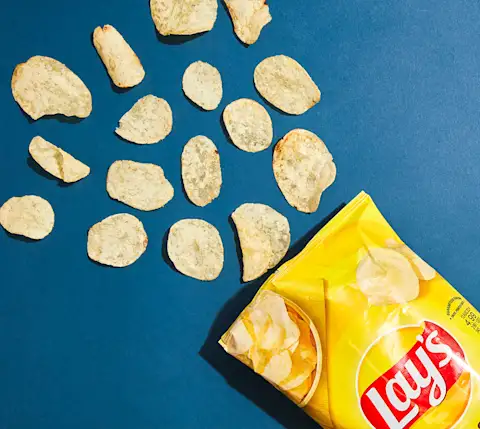
During my visit in 2019, executives at Frito-Lay told me that the best tasting potato chips require the perfect combination of good ingredients (a reliable potato), moisture control (they’re dehydrated a bit), shaping, and cooking method (a dialed-in oil temperature and cook time). Classic chips are fried quickly in oil at a very high temperature, while kettle chips are cooked at a slightly lower temperature for longer to develop a deeper crunch. I hadn’t had classic Lay’s in a while — I’m living in a kettle-cooked world — and they were sturdier and crispier than I remember. I was expecting shattering glass, featherlight chips, but they were substantial and satisfying while still sublimely light. My bag had big, palm-sized circular chips that maintained their high-pitched crrrrack even when tucked into a turkey sandwich. Lay’s dominates the chip aisle but its other varieties weren’t in the same league for me, except...
The Controversial Contender: Lay’s Baked Potato Crisps
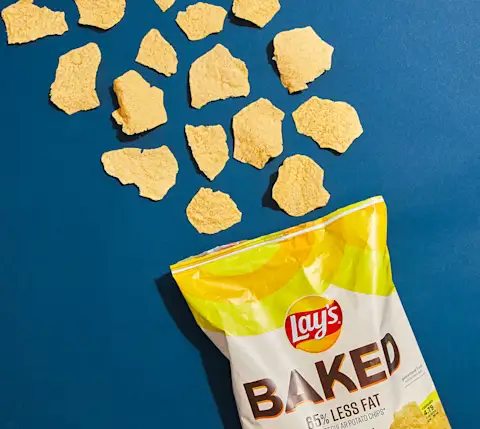
I would never try to justify a baked potato chip from a health perspective — a chip is a chip, enjoy the ride — but Lay’s Baked Potato Crisps are in a class of their own. I kept going back to the bag, long after the taste test was over. Lay’s pulls a sneaky one and adds a pinch of sugar to these which helps balance the salt while bringing out the potato flavor. The chips themselves are a mysterious octagonal shape (how? why?) with a bumpy topography full of air bubbles that create explosive — but light — crunch, as if they were fried. The secret is that, like Cheetos and so many other snacks, they’re “extruded” (imagine that Play-Doh toy you had as a kid that pushed Play-Doh out spaghetti strands but industrial-size stainless steel). They’re made of a mixture of dehydrated potatoes put through a custom machine that pushes them out in their funky shape before being baked; and because they’re not potato slices they have to be called “crisps” and not “chips.” Still, incredible.
The Best Kettle-Cooked: Kettle Brand Potato Chips
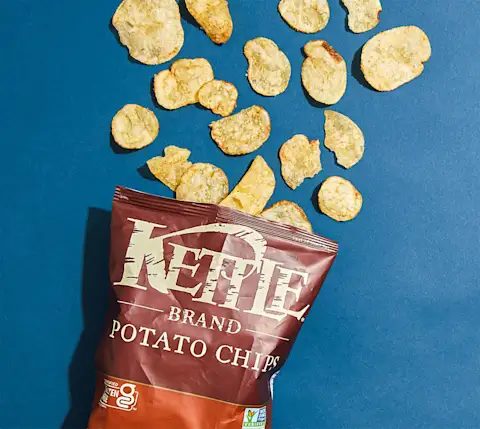
These surprised me. In the lineup, Kettle’s chips stood out among all the other chips for being significantly darker. Some even had brown bits of potato skin on their edges. Kettle-cooked chips get their extra crunch from being cooked for longer. Simple as that. You can tell that Kettle Brand cooks theirs longer than others, though, for a deep, toasty flavor (was it the potato I was tasting or the rich cooking oil? Turns out I like both). The texture was still crunchy, but not so crunchy that it scratches your gums, plus they’re sturdy and large enough for quality dipping. The other noticeable difference in Kettle Brand compared to other kettle-cooked chips was the amount of grease they left on my fingers, which was a lot. They’re so greasy that the serving size is smaller than other chip brands because they’re so caloric. But that’s a trade-off I’m willing to make for great chips.
The Best Kettle-Cooked For Salt Lovers: Cape Cod Kettle Cooked Potato Chips
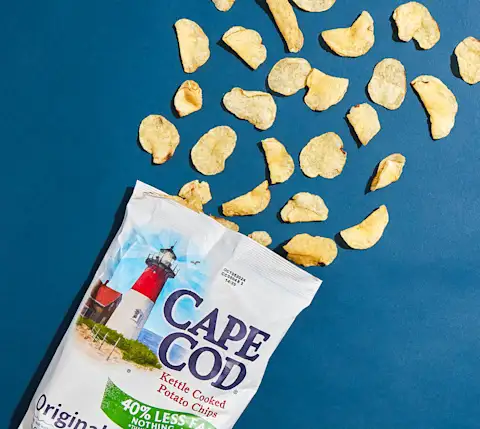
For a lighter flavor, Cape Cod is the platonic ideal of a kettle chip. It’s a total crowd-pleaser, where Kettle might strike some as too toasted. The golden, bite-size chips always seem to contain just the right ratio of rounded chips to fold-overs (industry term for folded chips, seriously), and the fold-overs create a resonating, loud crunch that dominates all other sounds in the vicinity. They’re also really salty. They had anywhere from 10 to 50 mg more sodium per serving than other brands tested. I like my potato chips salty, but I know some are sensitive to that kind of thing, and if so, I’d direct you to the runner-up: Miss Vickie’s.
Keep a lookout for the innovators: Boulder Canyon and Uglies
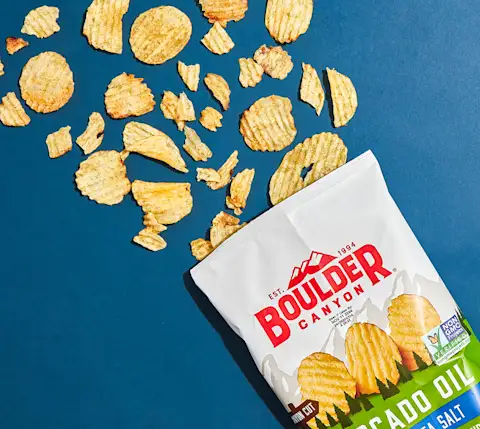
All of my potato chip tastings kept coming back to the same issue: Why don’t I taste actual potato in any of these chips? I’m guessing it’s because the quantity needed to supply hundreds of thousands of potatoes leaves little choice to the chip brands; they need mass-produced potatoes, not niche heirloom varietals. So if any chip entrepreneurs are reading this, please figure out a way to grow more delicious-tasting potatoes for national chip needs!
I admire what the brand Uglies is doing, by making chips with imperfect, discarded potatoes, but I couldn’t find any non-flavored versions in my area of Michigan. I also commonly buy Boulder Canyon chips made with either olive oil or avocado oil, which have a more buttery, prominent flavor than the blended vegetable oils the bigger brands rely on (and are less inflammatory in the ol’ body, if you’re keeping score). Boulder’s chips are ridged, but they have a new classic style I’m waiting to get my hands on. But if you do first, let me know where you think they rank.
Shop GroceryPHOTO CREDIT:
Photography: Paul Quitoriano
Art Direction: Sarah Ceniceros Gomez


